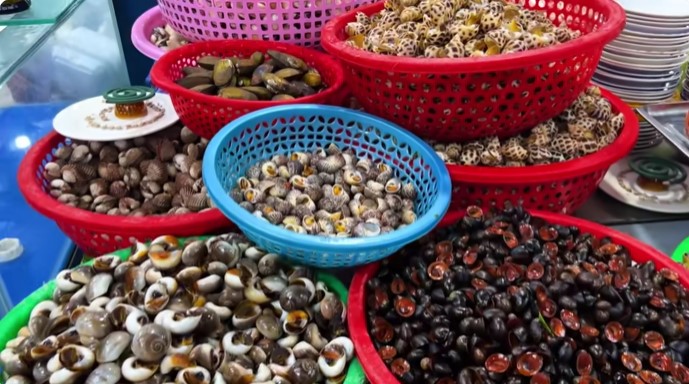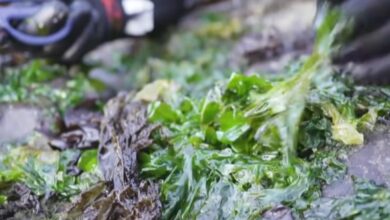Is Shellfish Halal
Navigating the dietary rules of Islam, especially concerning seafood, can be complex and nuanced. For Muslims committed to following halal dietary laws, understanding whether shellfish is permissible is crucial. This article provides an in-depth look into the Islamic perspectives on shellfish, examining various schools of thought, scriptural interpretations, and contemporary views.
Introduction
The dietary laws in Islam, which dictate what is halal (permissible) and haram (forbidden), are integral to the daily lives of Muslims. Seafood, and specifically shellfish, often falls into a gray area that sparks debate among scholars and followers. Is shellfish halal? The answer isn’t straightforward and depends significantly on the Islamic school of thought one follows. This article aims to clarify these perspectives, making it easier for Muslims to make informed decisions about their diet. Whether you’re curious about the nutritional benefits of shellfish, where to buy halal-certified seafood, or how different Islamic traditions view shellfish, this guide covers it all.

Islamic Perspectives on Shellfish
Hanafi School of Thought
The Hanafi school, one of the four major Sunni schools of Islamic jurisprudence, generally considers shellfish to be haram. This viewpoint is based on the belief that only fish with scales are explicitly permissible, as other types of seafood are not clearly mentioned as halal in the Quran or Hadith. Hanafi scholars often emphasize health concerns and the polluted environments in which shellfish are sometimes found as additional reasons for their prohibition.
Shafi’i, Maliki, and Hanbali Schools of Thought
In contrast, the Shafi’i, Maliki, and Hanbali schools of thought consider all types of shellfish to be halal. These scholars interpret Quranic verses, such as Surah Al-Ma’idah (5:96), which states, “Lawful to you is what you catch from the sea and use for food as provision for yourselves and for the travelers,” as a clear endorsement of the permissibility of all sea creatures, including shellfish. They argue that the general allowance for seafood encompasses shellfish, irrespective of whether they have scales.
Shia Perspective
Shia Muslims, particularly those following the rulings of Ayatollah Ali al-Sistani, hold that shellfish are haram, similar to the Hanafi viewpoint. According to this perspective, only fish with scales are considered halal, thereby excluding shellfish like crabs, lobsters, and shrimp.
Nutritional Benefits and Culinary Uses
Shellfish are renowned for their nutritional benefits. They are rich in protein, omega-3 fatty acids, and essential minerals like zinc and iodine. Including shellfish in your diet can contribute to heart health, improve brain function, and provide a lean source of protein. Popular types of shellfish, such as shrimp, crabs, and lobsters, are enjoyed worldwide in various culinary traditions, from spicy Cajun dishes to refined French cuisine.
Where to Buy Halal-Certified Shellfish
For Muslims adhering to halal dietary laws, purchasing halal-certified shellfish is crucial. Many grocery stores and online retailers now offer halal-certified seafood options. Look for certifications from recognized halal authorities to ensure that the seafood you purchase meets Islamic dietary standards. Additionally, local halal markets often carry a variety of halal seafood, including shellfish.
Frequently Asked Questions
Is all shellfish considered halal in Islam?
No, there is a significant difference of opinion among Islamic scholars. The Maliki school considers all shellfish haram, while the Hanafi school views it as makruh (detestable). However, the Shafi’i and Hanbali schools generally regard shellfish as halal.
Why do some Islamic schools of thought consider shellfish haram?
The Maliki school considers shellfish haram because they believe only sea creatures resembling land animals (like fish with scales) are permissible. Similarly, the Hanafi school views shellfish as makruh because they do not fit the category of fish traditionally deemed halal.
Are there any shellfish exceptions within the Hanafi school?
In the Hanafi school, only fish with scales are considered halal, which excludes most shellfish. However, there is some debate about certain sea creatures, such as eels, which are generally considered halal despite their unusual appearance.
Can Muslims consume crustaceans like crabs and lobsters?
The permissibility of eating crustaceans varies. While the Shafi’i, Hanbali, and many Maliki scholars allow crustaceans like crabs and lobsters, the Hanafi school generally does not permit their consumption.
What about mollusks like oysters and clams?
Similar to crustaceans, mollusks like oysters and clams are permitted by the Shafi’i, Hanbali, and most Maliki scholars but are considered makruh by the Hanafi school.
Are squid and octopus halal?
The majority of scholars from the Shafi’i, Hanbali, and Maliki schools consider squid and octopus halal. The Hanafi school, however, typically views these as makruh.
Is it safe for Muslims to eat shellfish from polluted waters?
No, consuming shellfish from polluted waters is not safe and would be considered haram due to the potential health risks and toxins that shellfish can accumulate from their environment.
Are there any specific halal certifications for seafood?
While there is no unique certification exclusively for seafood, halal certifications by recognized Islamic organizations can assure that the seafood meets halal standards, particularly concerning how the seafood is sourced and processed.
Can Muslims eat sushi?
Muslims can eat sushi if it does not contain haram ingredients like non-halal shellfish or alcohol-based sauces. The fish in sushi should be from the halal category, typically those with scales.
What are the general criteria for seafood to be considered halal?
Seafood must come from a water environment and be categorized as fish to be considered halal. For most schools, this includes fish with scales. Exceptions like shellfish and cephalopods depend on the specific school of thought.
Are imitation seafood products halal?
Imitation seafood can be halal if it is made from halal ingredients and does not contain any haram substances. Verification from halal certification authorities is recommended.
Can Muslims eat fish caught by non-Muslims?
Yes, Muslims can eat fish caught by non-Muslims as long as the fish meets the criteria of halal (e.g., it has scales for Hanafi followers) and is not processed with haram ingredients.
How should Muslims handle shellfish in mixed-seafood dishes?
Muslims should ensure that halal seafood is prepared separately from haram items to avoid cross-contamination. This includes using separate utensils and cooking surfaces.
Is it permissible for Muslims to eat shellfish if they are traveling?
While the general rulings still apply, some scholars allow for relaxation of dietary restrictions in cases of necessity or lack of alternatives, though this is a complex issue and should be addressed with personal religious advisors.
What are some common misconceptions about halal seafood?
A common misconception is that all seafood is halal for all Muslims. However, the permissibility of specific types of seafood varies greatly among different Islamic schools of thought. It is essential for Muslims to be informed about the rulings applicable to their school of thought.
Conclusion
The permissibility of shellfish in Islam varies significantly across different schools of thought. While the Hanafi and Shia schools generally prohibit shellfish, the Shafi’i, Maliki, and Hanbali schools deem it permissible. Ultimately, the decision on whether to consume shellfish rests with the individual, based on their adherence to specific Islamic jurisprudence. For those who choose to include shellfish in their diet, it offers numerous health benefits and diverse culinary possibilities. Ensuring that your shellfish is halal-certified can provide peace of mind and adherence to Islamic dietary laws.
Read also: Is Collagen Halal





